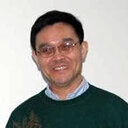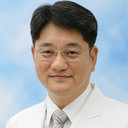A novel class of pyranocoumarin anti-androgen receptor signaling compounds.
Maneno muhimu
Kikemikali
Androgen and the androgen receptor (AR)-mediated signaling are crucial for prostate cancer development. Novel agents that can inhibit AR signaling in ligand-dependent and ligand-independent manners are desirable for the chemoprevention of prostate carcinogenesis and for the treatment of advanced prostate cancer. We have shown recently that the pyranocoumarin compound decursin from the herb Angelica gigas possesses potent anti-AR activities distinct from the anti-androgen bicalutamide. Here, we compared the anti-AR activities and the cell cycle arrest and apoptotic effects of decursin and two natural analogues in the androgen-dependent LNCaP human prostate cancer cell culture model to identify structure-activity relationships and mechanisms. Decursin and its isomer decursinol angelate decreased prostate-specific antigen expression with IC(50) of approximately 1 mumol/L. Both inhibited the androgen-stimulated AR nuclear translocation and transactivation, decreased AR protein abundance through proteasomal degradation, and induced G(0/1) arrest and morphologic differentiation. They also induced caspase-mediated apoptosis and reactive oxygen species at higher concentrations. Furthermore, they lacked the agonist activity of bicalutamide in the absence of androgen and were more potent than bicalutamide for suppressing androgen-stimulated cell growth. Decursinol, which does not contain a side chain, lacked the reactive oxygen species induction and apoptotic activities and exerted paradoxically an inhibitory and a stimulatory effect on AR signaling and cell growth. In conclusion, decursin and decursinol angelate are members of a novel class of nonsteroidal compounds that exert a long-lasting inhibition of both ligand-dependent and ligand-independent AR signaling. The side chain is critical for sustaining the anti-AR activities and the growth arrest and apoptotic effects.




